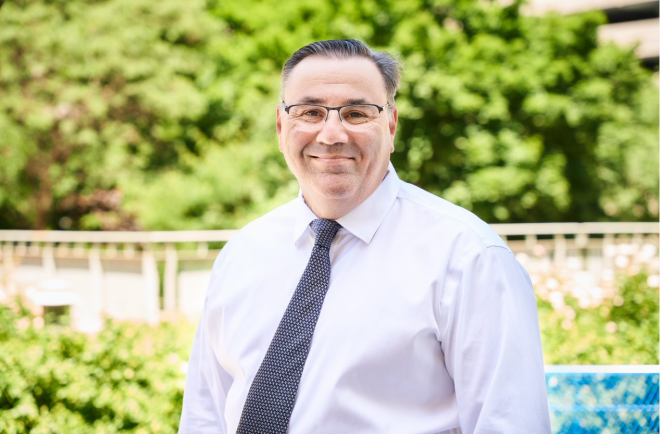Dr. Gustavo Saposnik is an Associate Professor of Medicine (Neurology) at the University of Toronto, Canada. He is a staff Neurologist at St. Michael’s Hospital and Director of the Stroke Outcomes Research Center at the Li Ka Shing Knowledge Institute. He also holds a cross appointments at the Institute of Clinical Evaluative Sciences (ICES), and at Institute of Health Policy, Management and Evaluation.
Gustavo was the recipient of the recent Distinguished Clinician Scientist Award (2012-2017) and the Mac Donald Award both from the Heart and Stroke Foundation of Canada (HSFC)
Dr Saposnik’ research interest include: Stroke Outcomes research, Heath services research, virtual reality, clinical decision making.
Vision: To improve stroke outcomes through cost-effective, high impact, & innovative research. I do so using a multidisciplinary approach that is integrated within existing stroke care services across the continuum.
Career Highlights
- Founder and CEO, NeuroEconSolutions: Led over 40 projects sponsored/partnered by pharmaceutical companies regarding how prescribers make therapeutic decisions with over 40 innovative peer-review publications in high-impact journals.
- Over 25 students/fellows receiving awards or hired at lead institutions worldwide.
- Creation, overseeing, and implementation of over 200 projects, many gathered media attention. 300+ peer-review publications.
- Healthcare consultant: Drug approval and recommendations/criteria for funding for the Ontario Ministry of Health.
- Reviewer of grants and projects for granting agencies (NIH, CIHR, Heart and Stroke Foundation of Canada) and Governments (Singapore, Netherlands, Hong Kong).
- Leadership experience: Team Leader and developer of the World Stroke Academy (educational branch) for the World Stroke Organization
- International experience as Executive Board Member: WSO, American Heart Association, Ontario Stroke Network.
Professional Experience
Li Ka Shing Knowledge Institute, Toronto, Canada | Dec 2015 – Present
Senior Scientist, Clinical Outcomes & Neuroeconomics Program
- Pioneered the integration of neuroeconomics concepts into clinical care, revolutionizing the field of research.
- Recognized with 12 prestigious peer-review awards for contributions to the field, showcasing expertise and innovative thinking.
- Published over 300 peer-reviewed articles, solidifying reputation as a leading authority in the field of neuroscience.
- Invited as a keynote speaker to more than 20 countries, sharing groundbreaking insights and influencing global thought leaders.
- Spearheaded development of 10 best-practice guidelines in stroke care, improving patient outcomes and setting industry standards.
- Demonstrated a commitment to advancing medical knowledge and enhancing patient care through extensive research and publication achievements.
World Stroke Academy (WSA)| World Stroke Organization | June 2020 – Present
Editor-in-Chief
- Spearhead the ideation, planning, and execution of groundbreaking projects within the stroke program and collaborate with other programs, driving innovation and transformative advancements.
- Hold pivotal role in overseeing editorial decisions and driving the educational platform of the WSA (World Stroke Academy).
- Implement effective strategies to enhance the educational impact and reach of the WSA, fostering professional development in the field of stroke care across the continuum.
- Collaborate with renowned experts and thought leaders to shape the direction and content of the WSA, positioning it as a leading resource in the industry.
- Play a key role in expanding the visibility and influence of the WSA, making it a go-to platform for professionals seeking cutting-edge insights and knowledge in stroke care.
- Contribute to the advancement of the field by ensuring the dissemination of accurate and valuable information through the WSA.
Li Ka Shing Knowledge Institute, University of Toronto, Toronto, Canada | July 2006 – Present
Clinical Lead, Stroke Outcomes Research & Decision Neuroscience Unit
- Leveraged deep expertise in the field of stroke care to identify unmet needs and opportunities for improvement, resulting in the creation of impactful projects that have made a tangible difference in patient outcomes.
- Apply a strategic mindset and forward-thinking approach to project development, ensuring alignment with organizational goals and objectives.
Unity Health, University of Toronto, Toronto, Canada | July 2006 – Present
Neurologist – Associate Professor of Medicine
- Hold the role of Medical Doctor (MD) with full responsibility for overseeing hospital admissions, consultations, and emergency room assessments of acute stroke cases.
- Lead the supervision and coordination of stroke units and neurology ward, ensuring optimal patient care and adherence to established protocols and guidelines.
- Teach undergraduate and graduate students, residents and postdoctoral fellows.
- Employ a comprehensive approach to patient assessment, utilizing advanced diagnostic techniques and medical expertise to accurately diagnose and develop tailored treatment plans.
- Maintain a high level of clinical competence and stay updated on the latest advancements in stroke and other neurological conditions management, ensuring the delivery of evidence-based care.
Ontario Ministry of Health (Canada) and Exceptional Access Program (EAP) | July 2007 – Present
Consultant & Reviewer
- Reviewer and consultant for the Exceptional Access Program at the Ontario Ministry of Health and Long-term Care.
Pharmaceutical/Medical Devices Companies (Roche, Servier, Celgene, Stryker, Novartis, AstraZeneca, BI) | July 2012 – Present
HealthCare Consultant
- Create real-world evidence (RWE), educational interventions, workshops for MSL, in different therapeutic areas in decision-making.
- Oversee key medical affairs activities, medical materials production, medical education initiatives, and scientific symposia.
- Engage in the development, review, and implementation of projects in Stroke Care and Primary Care in Argentina, South Korea, Thailand, Brazil, Canada.
Other Affiliations:
- Associate Professor, Medicine, St. Michael’s Hospital, University of Toronto
- Director, Stroke Research Unit, Mobility Program, St. Michael’s Hospital
- Scientist in the Keenan Research Centre of the Li Ka Shing Knowledge Institute of St. Michael’s Hospital
- Adjunct Scientist, Institute of Clinical Evaluative Sciences (ICES)
- Director, Center for Virtual reality Studies (CVR), Li Ka Shing Knowledge Institute
- Chair and Lead, Stroke Outcomes research Canada
- Scientist, Canadian Partnership for Stroke rehabilitation
